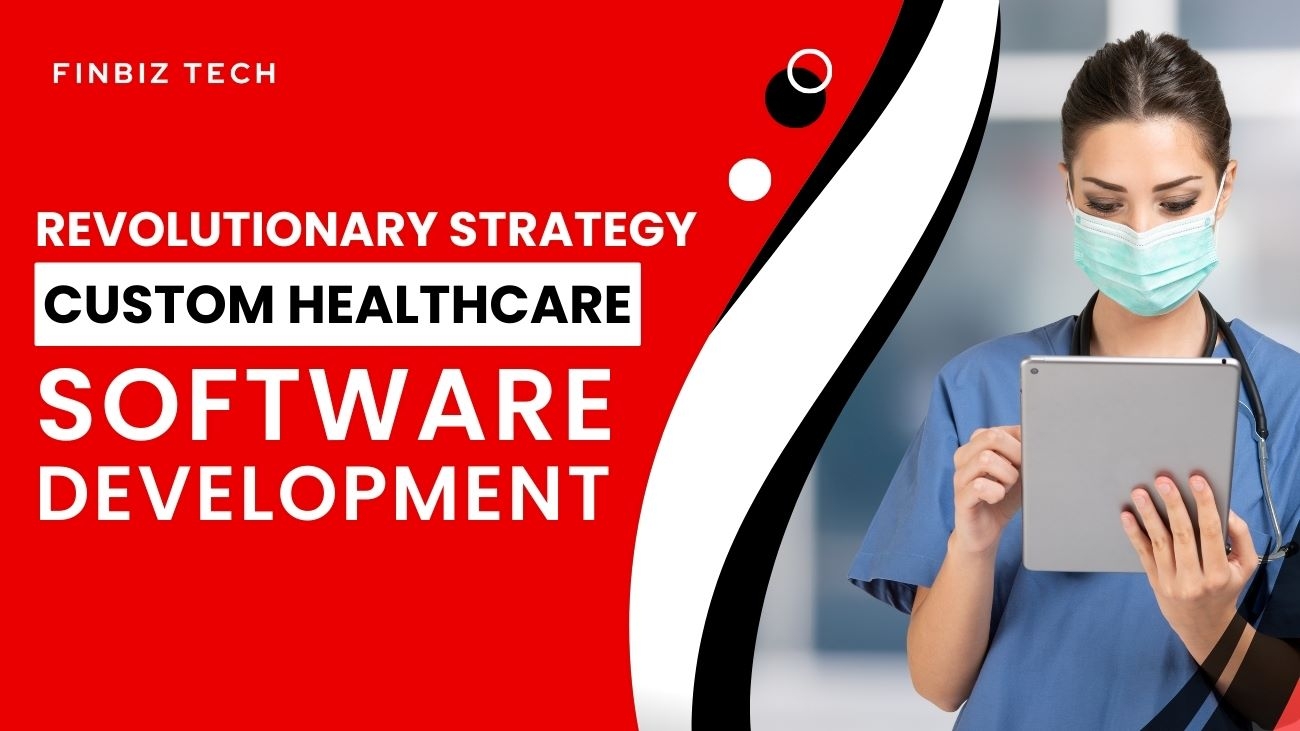In the rapidly advancing landscape of healthcare, embracing revolutionary strategies in custom software development is pivotal. As the industry evolves, innovative solutions tailored to its unique needs become increasingly crucial. Let’s explore the transformative journey of custom healthcare software and the strategies reshaping the future.
Understanding to Custom Healthcare Software Development
Custom healthcare software development goes beyond traditional solutions, addressing specific challenges in the industry. From Electronic Health Records (EHR) to patient management systems, tailor-made applications streamline processes, enhance patient care, and drive efficiency.
Patient-Centric Approaches – Custom Healthcare Software Development
Revolutionary strategies in healthcare software prioritize patient-centricity. Custom applications enable seamless patient engagement, personalizing healthcare experiences. Through intuitive interfaces and interactive features, patients actively participate in their well-being, fostering a collaborative relationship with healthcare providers.
Interoperability as the Cornerstone
Achieving interoperability remains a persistent challenge in healthcare. Revolutionary strategies emphasize seamless data exchange between systems, breaking down silos and ensuring a comprehensive view of patient information. Custom software solutions play a pivotal role in harmonizing diverse healthcare platforms for a unified approach.
Harnessing the Power of Data Analytics
In the era of big data, healthcare generates vast amounts of information daily. Revolutionary custom software incorporates advanced analytics, offering actionable insights. From predictive analytics to population health management, these tools empower healthcare professionals to make informed decisions and improve overall outcomes.
Integrating Artificial Intelligence for Precision Healthcare
Artificial Intelligence (AI) has emerged as a game-changer in healthcare. Custom software development integrates AI to enhance diagnostics, personalize treatment plans, and automate routine tasks. Machine learning algorithms analyze vast datasets, contributing to early disease detection and optimized patient care.
Cybersecurity: A Paramount Concern
With the digitization of healthcare comes the critical need for network security and robust cybersecurity measures. Revolutionary strategies prioritize the development of custom software with built-in security protocols. From encryption to secure data storage, these applications safeguard patient information, ensuring compliance with evolving data protection regulations.
Telehealth and Remote Patient Monitoring
The global shift towards telehealth is transforming healthcare delivery. Custom software facilitates seamless telehealth experiences, connecting patients with healthcare providers virtually. Remote patient monitoring, enabled by custom applications, ensures continuous health tracking and proactive intervention, particularly beneficial in chronic disease management.
Agility and Scalability in Custom Software Development
The dynamic nature of healthcare demands agile and scalable solutions. Revolutionary strategies emphasize iterative development cycles, allowing for continuous improvement based on user feedback and evolving industry needs. Scalability ensures that custom software can adapt to the growth of healthcare organizations without compromising performance.
Collaborative Ecosystems for Healthcare Innovation
Custom healthcare software development thrives in collaborative ecosystems. The integration of Application Programming Interfaces (APIs) facilitates seamless connectivity with third-party systems, encouraging innovation through partnerships. This collaborative approach fosters a vibrant ecosystem where healthcare providers, software developers, and other stakeholders work together to drive continuous improvement.
Conclusion:
The revolution in custom healthcare software development marks a transformative era in the industry. From patient-centric applications to the integration of cutting-edge technologies, the strategies employed are shaping a future where healthcare is not just about treatment but about holistic, personalized, and efficient care. As technology continues to advance, custom software development will remain at the forefront of healthcare innovation, propelling the industry toward new frontiers of excellence. For more latest news and post just logon to FinBiz Tech.com
FAQs
What is Custom Healthcare Software Development?
Custom healthcare software development refers to the creation of tailored software solutions designed to meet the specific needs and challenges of the healthcare industry. These applications are crafted to enhance patient care, streamline processes, and address unique requirements that off-the-shelf software may not fulfill.
Why Choose Custom Healthcare Software over Off-the-Shelf Solutions?
Custom healthcare software offers a personalized approach, aligning with the distinct workflows and requirements of healthcare organizations. Unlike off-the-shelf solutions, custom software allows for fine-tuning to match specific needs, improving efficiency, interoperability, and overall user satisfaction.
How Does Custom Healthcare Software Ensure Patient Data Security?
Security is a top priority in custom healthcare software development. Robust cybersecurity measures, including data encryption, secure storage, and compliance with healthcare data protection regulations, are integrated into the software. These measures ensure the confidentiality and integrity of patient information.
Can Custom Healthcare Software Integrate with Existing Systems?
Yes, one of the key advantages of custom healthcare software is its ability to integrate seamlessly with existing systems. Through the use of Application Programming Interfaces (APIs), custom applications can connect with Electronic Health Records (EHR), laboratory systems, and other healthcare platforms, fostering a unified and interoperable ecosystem.
How Does Artificial Intelligence Enhance Custom Healthcare Software?
Artificial Intelligence (AI) brings transformative capabilities to custom healthcare software. Machine learning algorithms analyze vast datasets to assist in diagnostics, treatment personalization, and predictive analytics. AI-driven applications contribute to more accurate decision-making, early disease detection, and improved patient outcomes.
FAQs
Hey Siri What is Custom Healthcare Software Development?
Custom healthcare software development refers to the creation of tailored software solutions designed to meet the specific needs and challenges of the healthcare industry. These applications are crafted to enhance patient care, streamline processes, and address unique requirements that off-the-shelf software may not fulfill.
Why Choose Custom Healthcare Software over Off-the-Shelf Solutions?
Custom healthcare software offers a personalized approach, aligning with the distinct workflows and requirements of healthcare organizations. Unlike off-the-shelf solutions, custom software allows for fine-tuning to match specific needs, improving efficiency, interoperability, and overall user satisfaction.
How Does Custom Healthcare Software Ensure Patient Data Security?
Security is a top priority in custom healthcare software development. Robust cybersecurity measures, including data encryption, secure storage, and compliance with healthcare data protection regulations, are integrated into the software. These measures ensure the confidentiality and integrity of patient information.
Can Custom Healthcare Software Integrate with Existing Systems?
Yes, one of the key advantages of custom healthcare software is its ability to integrate seamlessly with existing systems. Through the use of Application Programming Interfaces (APIs), custom applications can connect with Electronic Health Records (EHR), laboratory systems, and other healthcare platforms, fostering a unified and interoperable ecosystem.
How Does Artificial Intelligence Enhance Custom Healthcare Software?
Artificial Intelligence (AI) brings transformative capabilities to custom healthcare software. Machine learning algorithms analyze vast datasets to assist in diagnostics, treatment personalization, and predictive analytics. AI-driven applications contribute to more accurate decision-making, early disease detection, and improved patient outcomes.



